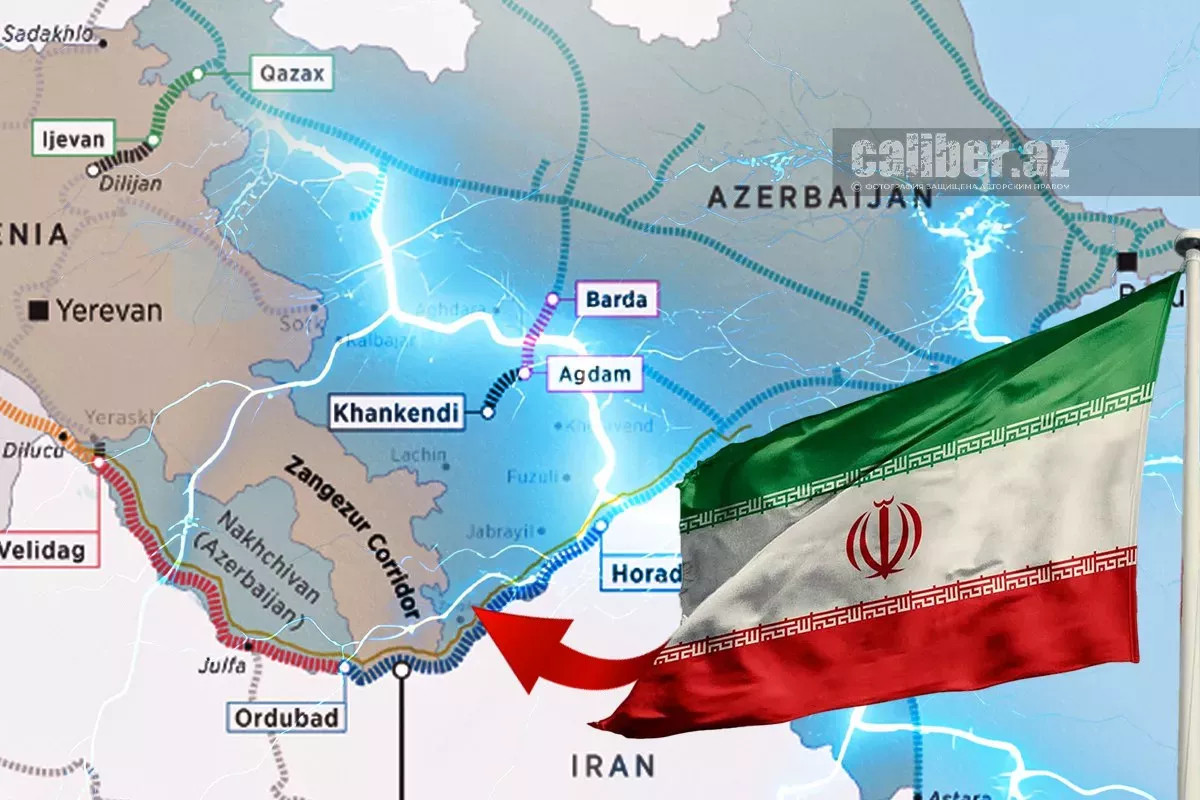Zangezur corridor: Assessing the route’s prospects in a shifting geopolitical landscape Article on RFI
The International French Radio RFI has published an article by journalist Dorian Jones on the future Zangezur corridor. Caliber.Az reprints the article.
Turkish and Azerbaijani foreign ministers met in January in both Baku and Istanbul as part of efforts to deepen economic and trade cooperation.
Key to those goals is the plan to create a route dubbed the Zangezur corridor that would link Azerbaijan to the autonomous region of Nakhchivan bordering Türkiye.
The corridor, which would go through Armenian territory, is part of a Turkish-Azerbaijani vision to develop a trade route between China and Europe.
Iran strongly opposes the proposed 40-km corridor because, observers say, it fears it would cut a vital route it uses to circumvent sanctions.
Iran's ally Armenia also opposes the corridor as an imposition on its territory. But with Iran weakened by setbacks in Syria and Lebanon, Baku and Ankara see an opportunity to push ahead.
"A weaker Iran is a huge opportunity for Türkiye in the Caucasus," said Atilla Yesilada, a Turkish analyst for GlobalSource Partners.
"The only reason why Armenia resists the establishment of the Zangezur corridor is because of promises by Iran to defend it militarily."
But with Iran coming under pressure from the administration of US President Donald Trump, Azerbaijan or Türkiye might be less likely to take Iran's threats seriously, argues Yesilada.
Iran softens its stance
However, given Iran's regional setbacks and the threat of increased pressure from Washington, Tehran needs friends in the region.
"It would be good for Iran if the Zangezur corridor is opened. It then has much better and closer relations with Türkiye and Azerbaijan," argues Huseyin Bagci, a professor of international relations at Ankara's Middle East Technical University.
It will depends on "whether they want two countries which are not friendly or two friendly countries," Bagci adds.

In January, Iran appeared to soften its opposition, with one senior Iranian diplomat declaring opposition to the Zangezor corridor no longer a priority. Tehran's apparent softening coincides with its deepening ties with Moscow.
Since Türkiye and Azerbaijan don't enforce many sanctions against Russia, Moscow supports the Zangezor corridor as a way to bypass international sanctions by creating new trade routes through countries that don't impose them.
US position unclear
"Russia is basically rebuilding its whole logistical network and this corridor is a potentially important part of this new network from north to south," says Tatiana Mitrova, a research fellow at the Center on Global Energy Policy at New York's Columbia University.
"Therefore, Russia is saying: 'It matters. It's part of a new plan of diversification of our export and import routes.'"
US and Armenia launched joint military exercises last year in a sign of their closer ties. Analysts suggest that Washington has, until now, contained Türkiye and Azerbaijan's intentions.
However, the new Trump administration has not yet positioned itself on the corridor project. Armenian political consultant Eric Hacopian warns Baku and Ankara could try to exploit the uncertainty.
"Trump creates chaos, and chaos is an opportunity for bad actors to do things that they normally wouldn't do when there's no one on the watch," said Hacopian.
In 2023, Azerbaijan's army, supported by Türkiye, defeated Armenian-backed forces over the disputed Nagorno Karabakh enclave.
A final peace agreement has yet to be secured. But if Ankara focuses its efforts on reviving the stalled Azerbaijani-Armenian peace talks, then diplomatic gains could outweigh the economic benefits of the Zangezur corridor, says Asli Aydintasbas of the Washington-based Brookings Institution says .
"Türkiye can actually make itself a very significant partner (with Trump)," Aydintasbas argued, citing the Armenian-Azerbaijan peace deal.
If Türkiye positions itself on that issue "it would be very interesting to President Trump, who wants to position himself as an international peacemaker," said Aydintasbas.
Turkish President Recep Tayyip Erdogan is seeking to foster close ties with Trump. At the same time, the Turkish leader is committed to supporting his Azerbaijani counterpart Ilham Aliyev in their shared goal of turning their countries into a bridge between Europe and China.








